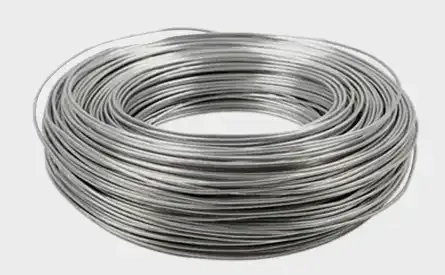types of farm fencing
Dic . 12, 2024 01:27
Types of Farm Fencing A Comprehensive Guide
Farm fencing is a fundamental aspect of agricultural operations, serving numerous purposes including maintaining animal health, ensuring crop protection, and managing land boundaries. Different types of fencing can be utilized depending on the specific needs of the farm, the type of livestock being housed, and the geographical features of the land. Below, we explore various types of farm fencing, their characteristics, advantages, and ideal applications.
1. Barbed Wire Fencing
Barbed wire fencing is one of the most traditional and widely used types of fencing in agriculture. It consists of twisted strands of wire with sharp barbs protruding at intervals. This type of fencing is particularly effective for enclosing large areas of pastureland and is commonly used for cattle and horses. The barbs deter animals from trying to escape, while also preventing intruders from entering the property.
Advantages - Cost-effective and easy to install. - Durable and can withstand harsh weather conditions.
However, barbed wire fencing can pose a danger to animals and humans alike, so it requires careful management to avoid injuries.
2. Electric Fencing
Electric fencing utilizes an electrified wire to create a psychological barrier for livestock. When animals contact the wire, they receive a mild shock, which discourages them from attempting to breach the fence. This type of fencing is highly effective for containing livestock and is increasingly popular among farmers.
Advantages - Flexible design allows for easy reconfiguration as needed. - Can be used for both large and small areas. - Fewer physical barriers mean easier access for farm equipment.
Yet, farmers must regularly check the electrified wire to ensure it remains functional and free from vegetation that could short the circuit.
3. Wooden Fencing
Wooden fencing, often seen in the form of post-and-rail designs, is aesthetically pleasing and effective for boundary demarcation. This type of fence is often used in horse farms and residential properties but can also be found in cattle ranches.
Advantages - Strong and durable when properly treated
. - Offers a traditional look that is appealing to many.However, wooden fences can be more expensive and require regular maintenance to prevent rot and decay.
types of farm fencing

4. Mesh Fencing
Wire mesh fencing provides excellent visibility and protection and is commonly used for poultry and smaller livestock. This type of fencing typically consists of galvanized steel or coated wire that is woven together to form a strong barrier.
Advantages - Effective at keeping smaller animals in and predators out. - Allows for airflow and visibility, which is beneficial in various climates.
The drawbacks include a higher installation cost and the risk of stretching or breaking if not properly maintained.
5. Vinyl Fencing
Vinyl fencing has gained popularity in recent years due to its aesthetic appeal and durability. This type of fencing is made from high-quality plastic and comes in various styles and colors. While it’s more common in residential settings, larger farms have started considering its use for specific applications.
Advantages - Resistant to weather and won’t rot or rust. - Low maintenance – does not require painting or staining.
However, its higher initial cost may be a deterrent for some farmers.
6. Stone and Brick Fencing
For those looking for a more permanent solution, stone and brick fencing stands out as the most durable option. These types of fences are often used in high-value areas or historical farms.
Advantages - Extremely durable and provides excellent security. - Provides a significant aesthetic appeal and can increase property value.
The main disadvantage is the high cost of materials and labor, making it less accessible for smaller farms.
Conclusion
Choosing the right type of farm fencing is crucial for ensuring the safety and well-being of livestock, managing crops, and defining land boundaries. Each type of fencing has its advantages and disadvantages, making it important for farmers to consider their specific needs and budget before making a decision. Whether opting for traditional barbed wire, modern electric options, or durable wooden and vinyl fences, a well-chosen fence can significantly enhance the efficiency and productivity of any farming operation.




















